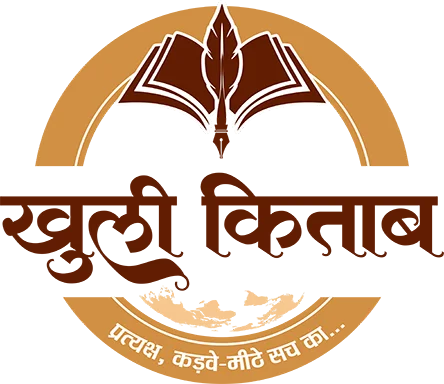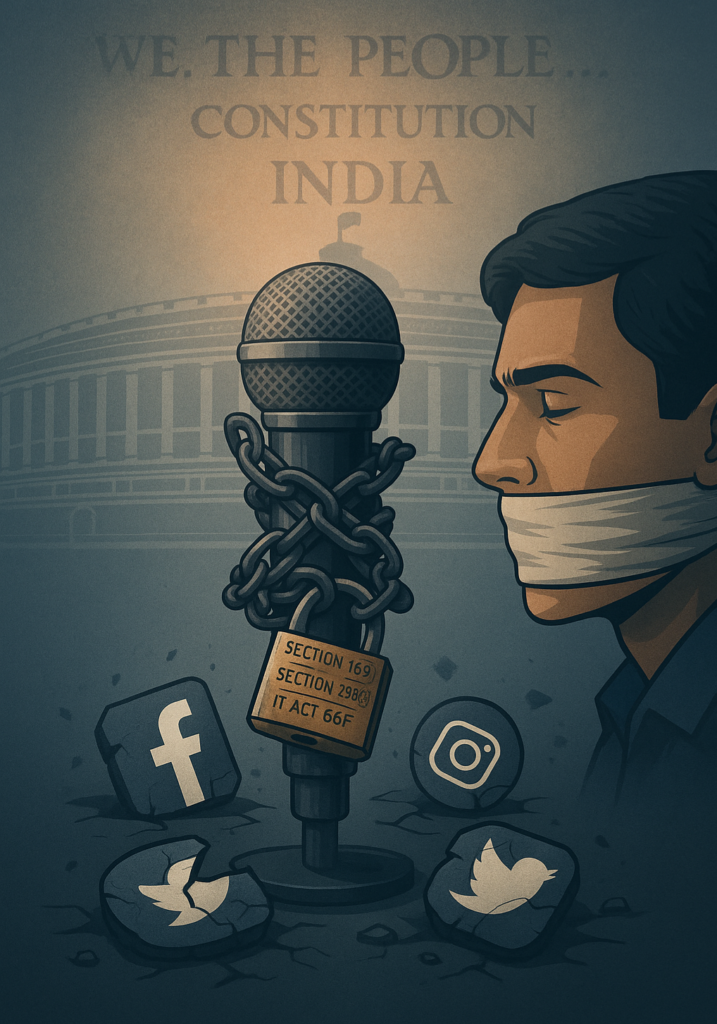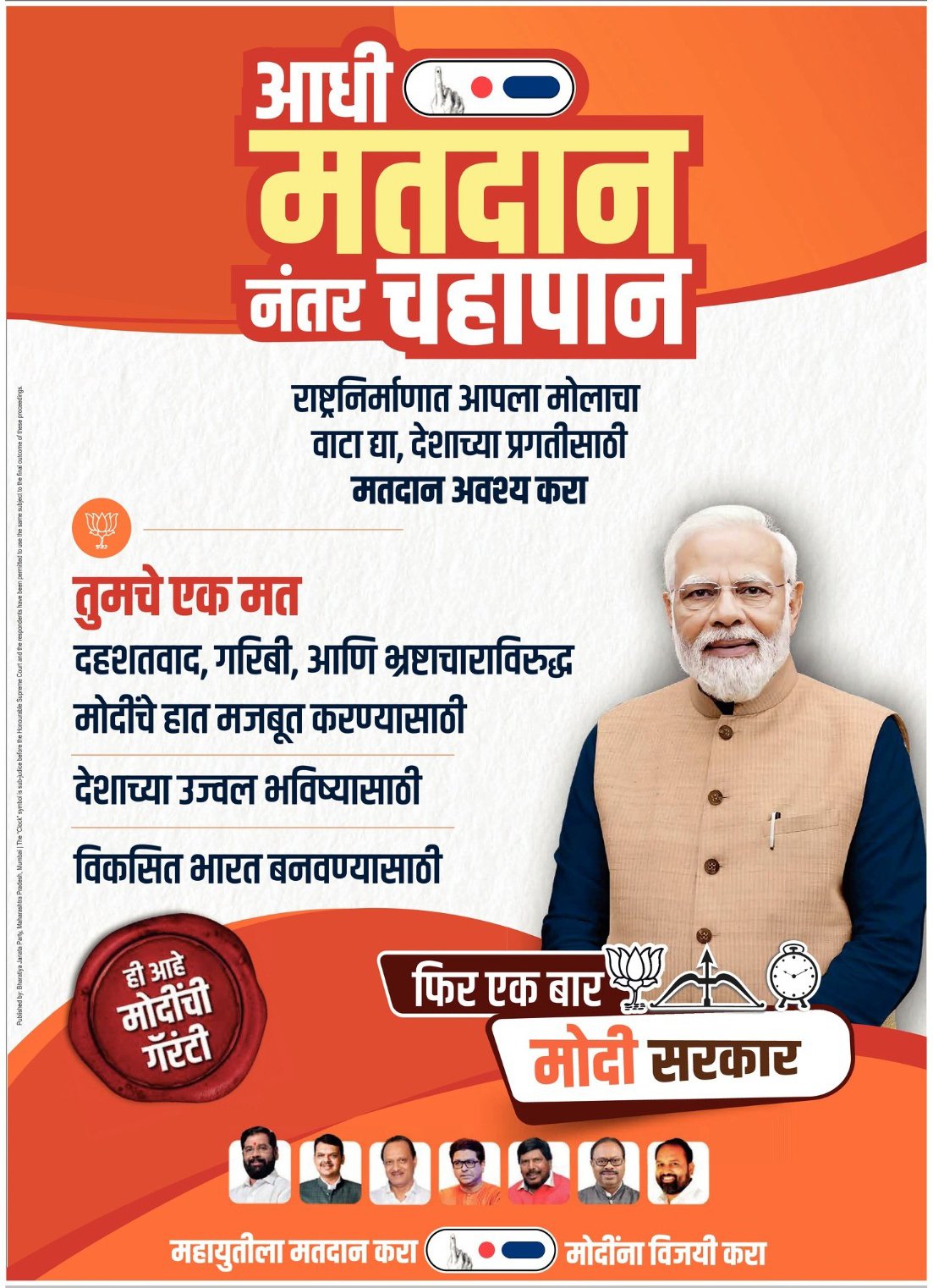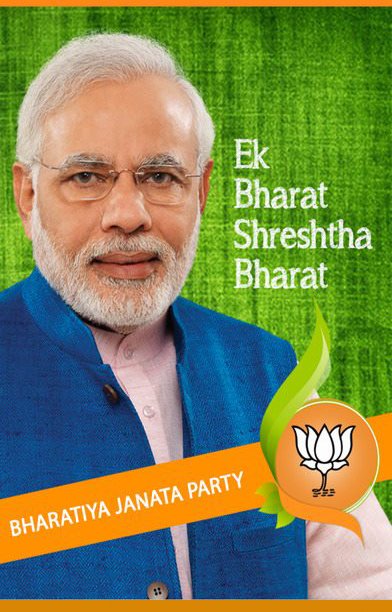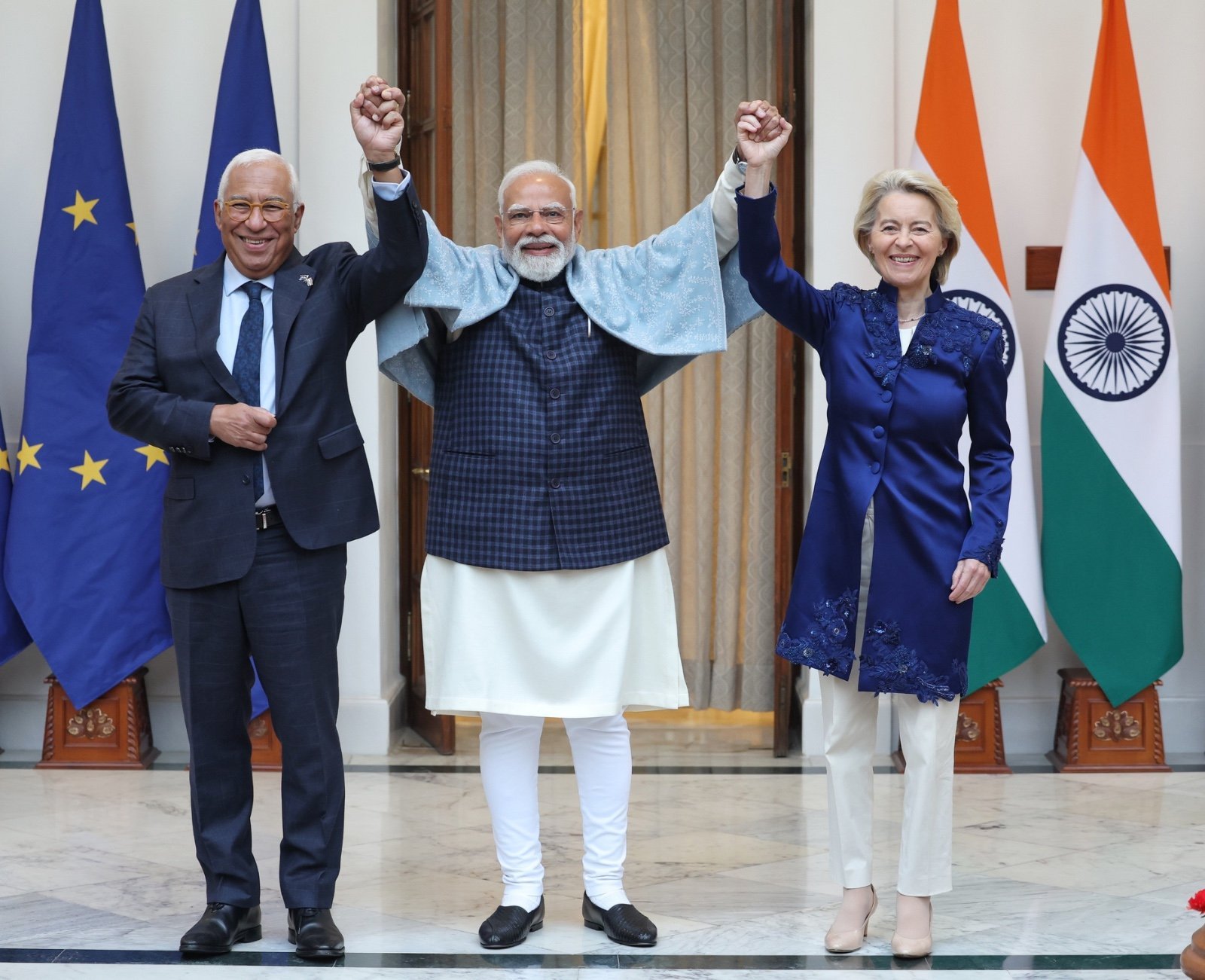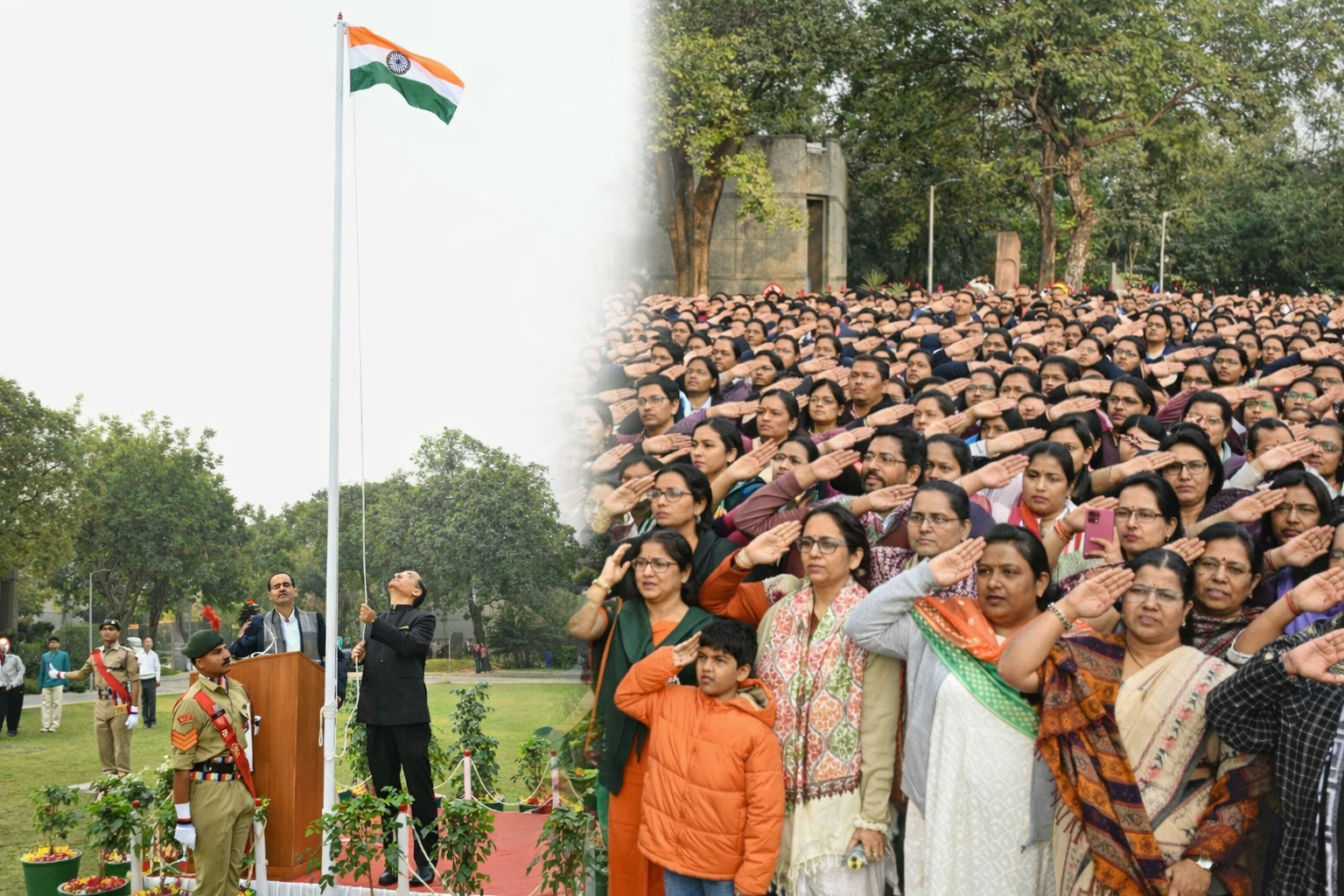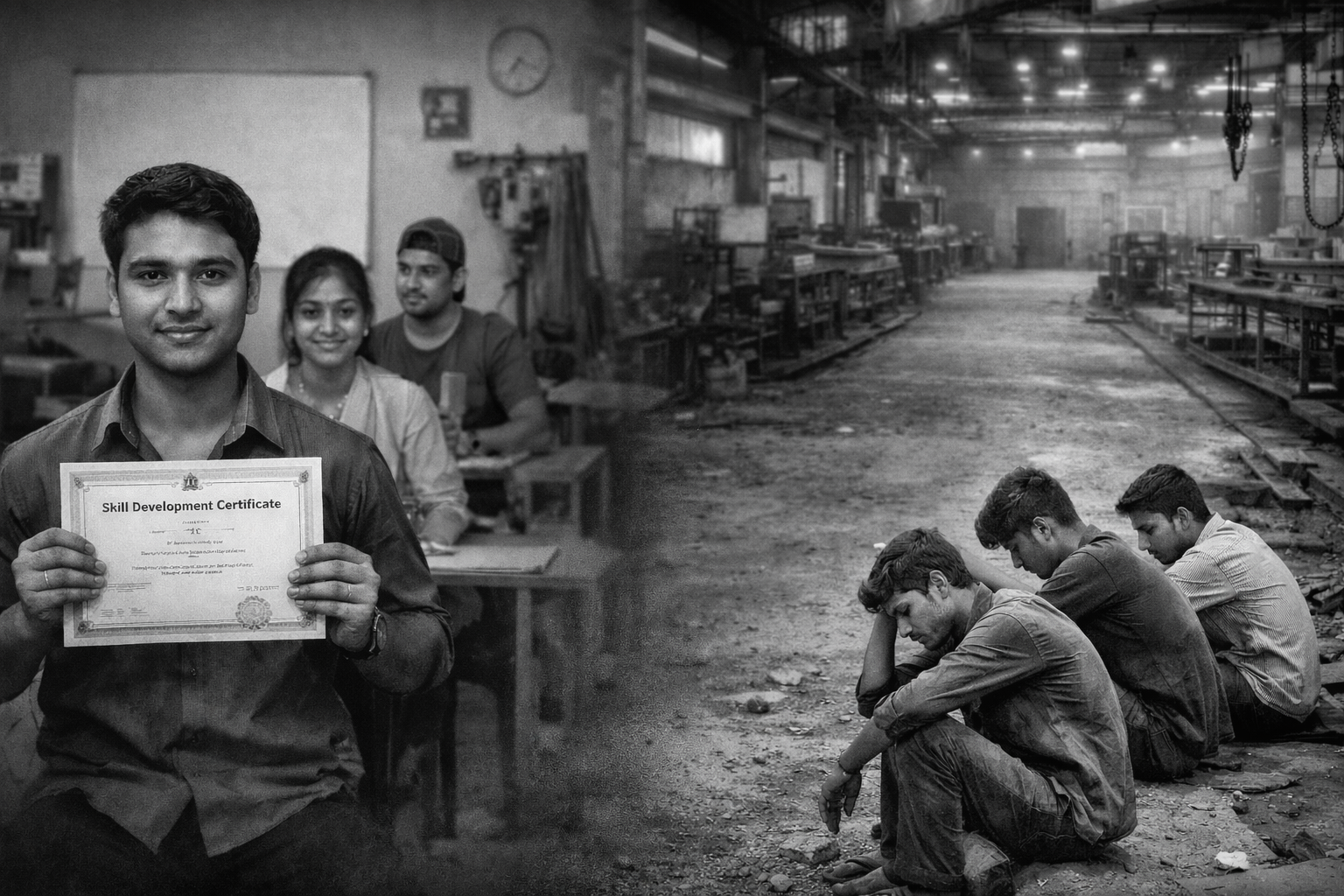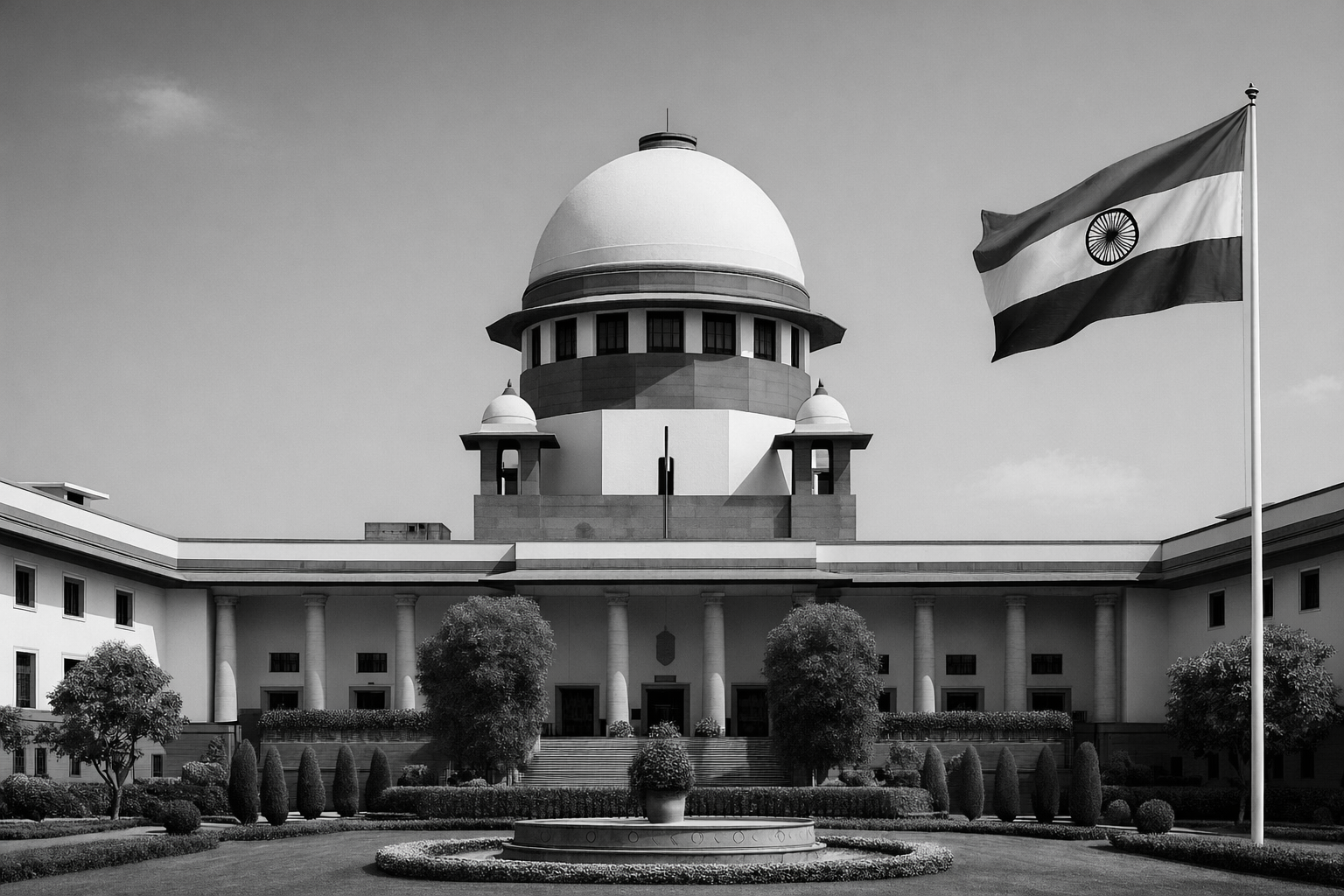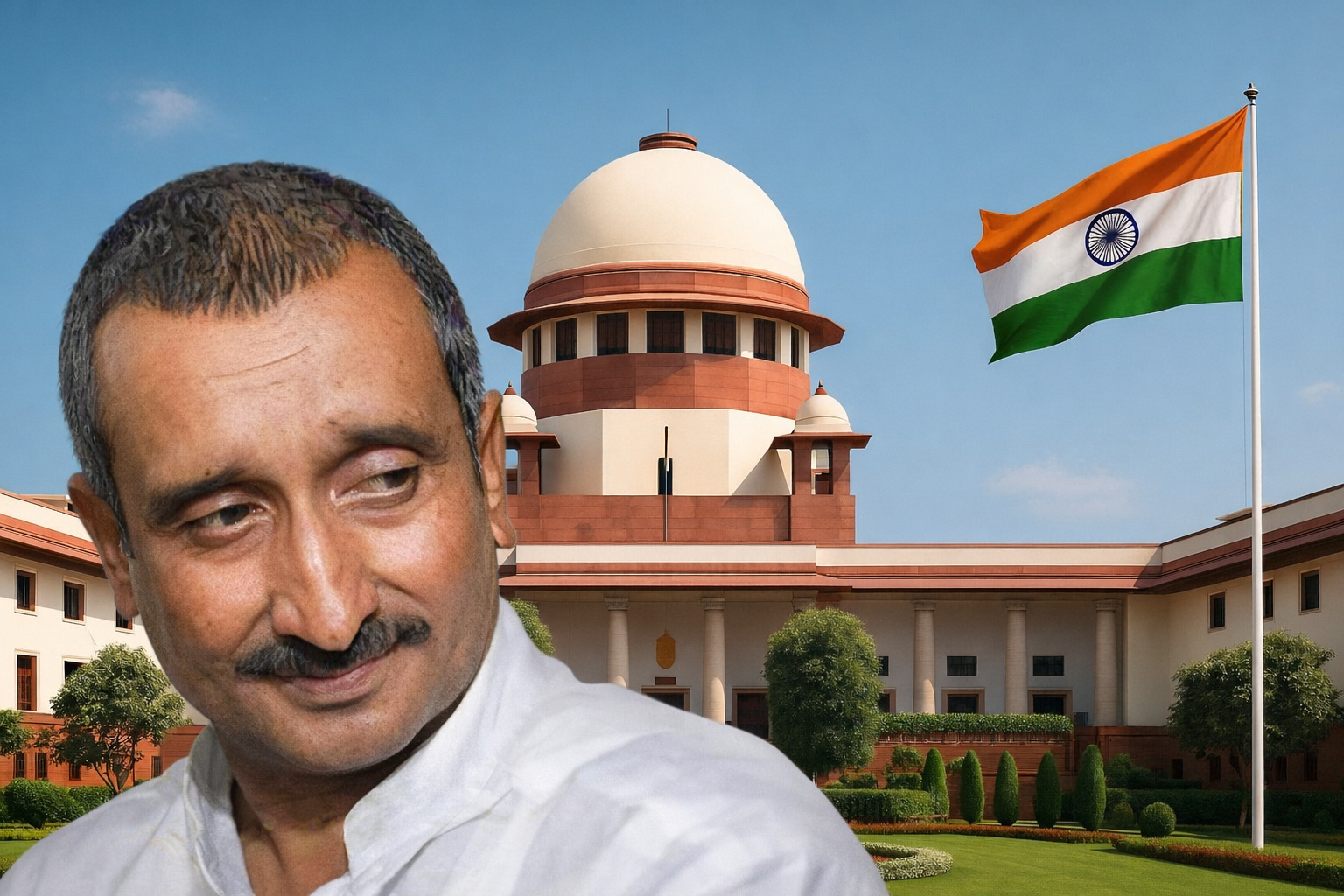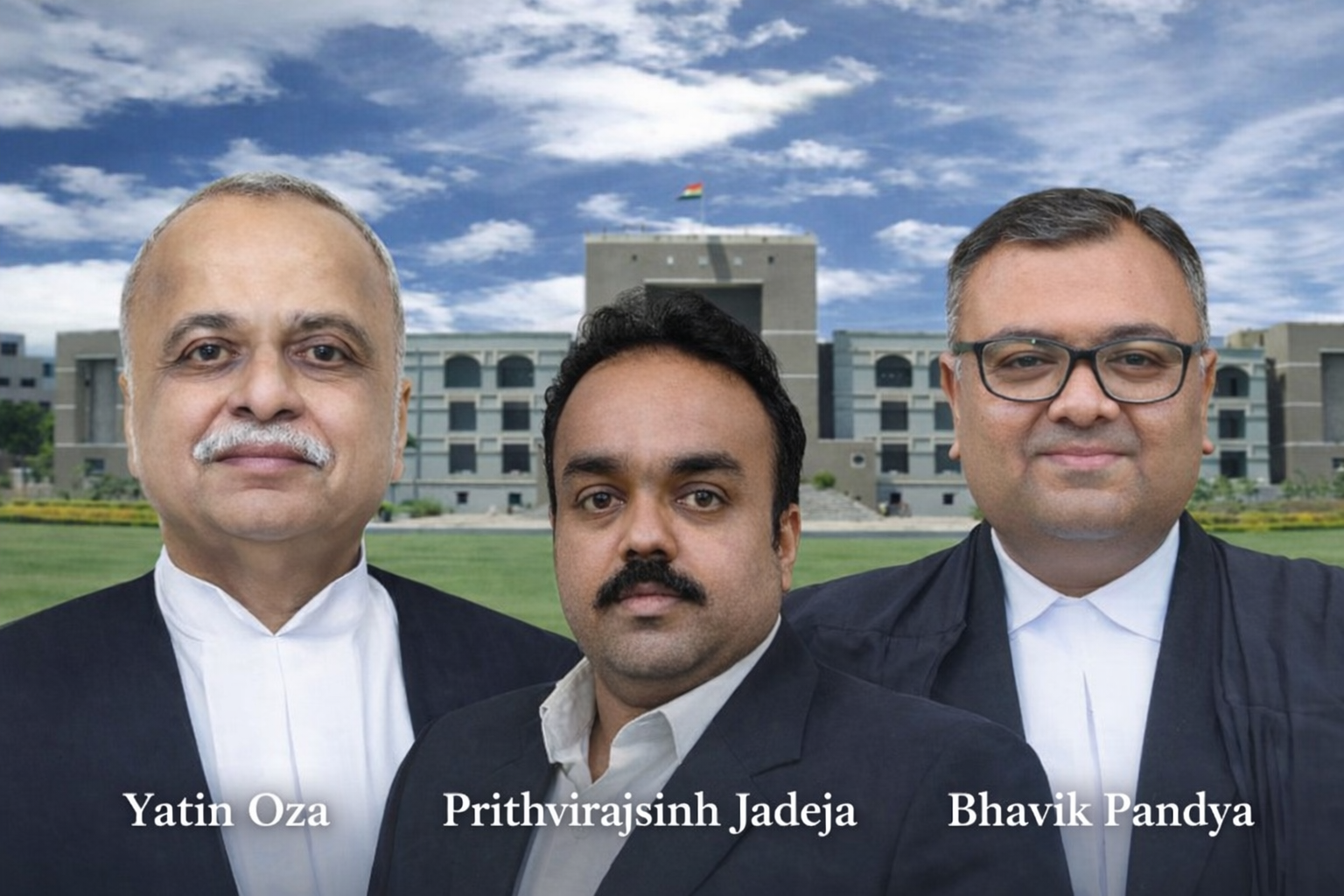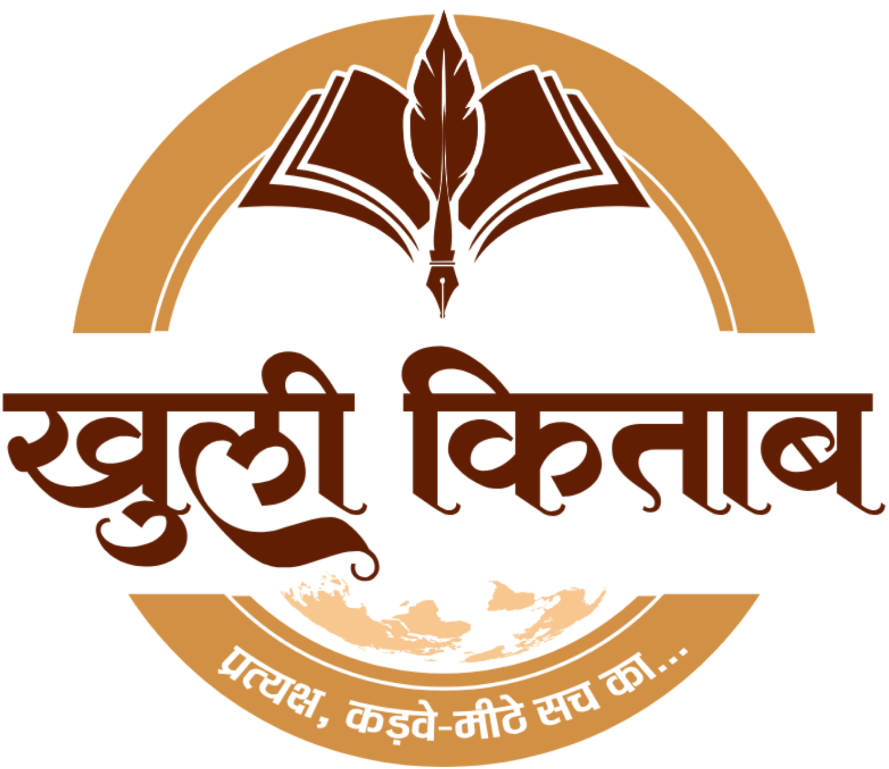
Ahmedabad, July 5, 2025, In the aftermath of Operation Sindoor, a wave of criminal actions against individuals expressing criticism or personal opinions on social media has emerged as an alarming trend across India. From political leaders to journalists, a professor, and tech-savvy youth — no one was spared from this sweeping crackdown. Among these, the case of Rajesh Thanaji Soni, General Secretary of Gujarat Congress, stands out as the most prominent.
Arrested on June 6, 2025, from Ahmedabad, Rajesh Soni was accused of questioning the commitment and integrity of the armed forces in a Facebook post, allegedly attempting to create distrust among the public. An FIR was lodged against him at the CID Cyber Crime Police Station in Gandhinagar (Gujarat) under Sections 152 and 353(1)(a) of the Bharatiya Nyaya Sanhita (BNS). After his arrest, he approached the Gujarat High Court, which found no prima facie indication of violence or rebellion and granted him protection from arrest and coercive actions, although the investigation and possible filing of a chargesheet were allowed to continue.
Soni’s case transcended an individual legal battle and became a national debate on the line between freedom of expression and national interest. This report also analyzes the case of Professor Ali Khan Mahmudabad from Ashoka University and the case of a young man from Nadiad (Gujarat) along with a minor, accused of a cyberattack. The latter case, however, is of a different nature, involving concrete digital evidence leading to legal action. It highlights the delicate difference between criticism and anti-national activities — a distinction vital to a healthy democracy.
The historic Supreme Court ruling in the Imran Pratapgarhi case — which declared that criticism and dissent cannot be labeled as sedition — provides a constitutional framework and depth to this debate. The central question remains: Is turning criticism into a crime an attack on fundamental democratic rights, or is it an essential measure to protect national interests? This is the question resonating in the mind of every vigilant citizen today.
Rajesh Soni’s Battle: When Criticism Enters the Courtroom
An FIR (C.R. No. 11201018250021/2025) was filed at the CID Cyber Crime Police Station in Gandhinagar, accusing Rajesh Soni of undermining the Army’s reputation during Operation Sindoor and allegedly attempting to instill public distrust. He was charged under Sections 152 and 353(1)(a) of BNS.
After his arrest, Soni filed a Special Criminal Application (Quashing) before the Gujarat High Court challenging both his arrest and the FIR. Senior Advocate Hriday Buch and assisting Advocate Dhruvik K. Patel presented a well-balanced, fact-based, and powerful argument. They not only reinforced constitutional rights but also effectively highlighted the fine line between criticism and sedition before the court.
They argued that Soni neither incited violence nor rebellion but merely exercised his right to free expression. Citing the Supreme Court’s judgment in Imran Pratapgarhi vs State of Gujarat (Criminal Appeal No. 1545/2025), they emphasized that criticism and satire cannot be equated with anti-national activities.
On June 20, 2025, Justice Hasmukh D. Suthar of the Gujarat High Court observed that there was no direct indication of violence or rebellion in the posts. The court granted protection from arrest and coercive action, while allowing the investigation and potential filing of a chargesheet to proceed. The petitioner was also directed to fully cooperate with the investigation.
When “Khuli Kitab” contacted Advocate Dhruvik K. Patel for comments, he respectfully declined to make a public statement due to the political nature of the matter and stated that the report should be guided strictly by the court’s orders.
The forthrightness and fact-based, dignified arguments presented by the legal team in Soni’s case demonstrated how even sensitive issues can be addressed with responsibility and grace in court. It was a testament to their unwavering commitment to impartiality and the protection of democratic values.
Speaking to Minutes & Tagged Orders: Unpacking the Legal Fine Print
Even after being granted protection from arrest, the court had allowed the investigation and potential filing of a chargesheet. Subsequently, the petitioner filed an additional application under “Speaking to Minutes,” requesting that no chargesheet be filed until the entire proceedings were concluded.
Speaking to Minutes is a judicial mechanism through which parties seek clarification, explanation, or correction in an order without altering its core essence or effect. In this case, it was strategically used by the petitioner’s side with caution.
However, on June 26, 2025, the Gujarat High Court rejected this application, stating explicitly that protection from arrest does not imply a stay on the investigation or filing of the chargesheet. The court clarified that the investigating agency is free to continue its proceedings and submit its report (chargesheet).
This order was included as “Tagged Orders” alongside the main order. Tagged Orders refer to supplementary orders directly linked to the primary order and are meant to be read together for complete clarity. Their purpose is to maintain transparency in the sequence of directives and avoid interpretational disputes.
This entire process reflected how the court managed to strike a balance — respecting the right to free expression on one hand, while empowering the investigating agency to function independently, thereby safeguarding the rule of law.
The detailed, balanced judgment in Rajesh Soni’s case stands as a benchmark, illustrating the judiciary’s commitment to fact-based, constitutionally grounded decision-making even in sensitive matters.
Imran Pratapgarhi’s Verdict: A Supreme Defense of Dissent
During Soni’s hearing, the most referenced precedent was the Supreme Court’s judgment in Imran Pratapgarhi vs State of Gujarat (Criminal Appeal No. 1545/2025). This case has offered a fresh constitutional perspective on the conflict between freedom of expression and national interest.
Congress leader and renowned poet Imran Pratapgarhi was accused of threatening the sovereignty and integrity of India through his speeches and social media posts criticizing the government and the army. He was charged under Section 152 of BNS.
Senior Advocates Kapil Sibal and Sidharth Luthra argued that criticism and dissent are core elements of democracy and labeling them as anti-national violates the right to free speech guaranteed under Article 19(1)(a) of the Constitution.
The Supreme Court, in its landmark order, stated:
Criticism or dissent cannot be termed as sedition or as endangering the sovereignty and integrity of India.
The court further emphasized that ideological disagreements or sharp criticism cannot be criminalized unless they incite violence or rebellion. Consequently, the FIR against Imran Pratapgarhi was quashed.
This judgment not only provided relief to Pratapgarhi but also served as a protective shield for countless voices striving to keep democracy alive through dissent and critique.
In Soni’s case, these arguments were crucial in highlighting that treating criticism as sedition fundamentally undermines constitutional rights. The court took serious note of this precedent while granting Soni relief.
This episode exemplifies how the judiciary plays a decisive role in safeguarding constitutional values and preventing the misuse of state power.
Professor Mahmudabad: The Academic Voice Challenged
Among the prominent names targeted post-Operation Sindoor was Professor Ali Khan Mahmudabad of Ashoka University. On May 18, 2025, he was arrested by Haryana Police from his residence in Delhi for his social media posts critically analyzing Operation Sindoor and India’s military response.
Mahmudabad was charged under Section 152 of BNS and other severe provisions. The FIR claimed that his posts hurt national sentiments and attempted to disrupt social harmony.
Represented before the Supreme Court by Senior Advocates Kapil Sibal the defense argued that Mahmudabad had merely offered a reflective critique of militarism and nationalism and had not incited any violence or rebellion. His statements were protected under Article 19(1)(a) as free expression.
On May 21, 2025, the Supreme Court granted him interim bail, noting:
“The academician had a right to his opinion, but not at the cost of hurting others or compromising national security.”
The court ordered the formation of a Special Investigation Team (SIT) to thoroughly examine his posts and instructed Mahmudabad to fully cooperate with the investigation and refrain from making any further controversial statements.
This case raised critical questions on whether intellectual critique and academic freedom can be stifled in a democratic society. The arrest of Mahmudabad was seen as a cautionary signal to scholars, intellectuals, and students about the narrowing space for ideological dissent.
Following his arrest, Ashoka University’s faculty association rallied in support, demanding his immediate and unconditional release.
Nadiad Cyber Attack: When Dissent Turns into Sabotage?
Amid questions on freedom of expression, another significant case emerged that underscored national security threats. On May 20, 2025, the Gujarat ATS (Anti-Terrorism Squad) arrested 18-year-old Jasim Shahnawaz Ansari from Nadiad, along with a minor accomplice.
They were accused of attempting to target at least 20 government websites on the day Operation Sindoor was launched. According to the ATS investigation, they had created a Telegram group named “AnonSec” and plotted Distributed Denial-of-Service (DDoS) attacks to paralyze critical digital infrastructure.
The Gujarat ATS revealed that Ansari had used programming tools like Python and cloned scripts from GitHub to prepare for the attack. Additionally, he posted provocative, anti-India messages on Telegram, including:
“India may have initiated it, but we will conclude it.”
“Hi, India! We just took down your financial shield and servers.”
They were charged under Section 66F (Cyber Terrorism) and Section 43 of the Information Technology Act, 2000. The investigation further uncovered attempts to target not just state websites but also portals of central government departments.
Ansari’s case underscored how technological prowess and emerging digital skills can be misused by youth to engage in alleged anti-national activities. In this instance, the ATS had substantial digital evidence, which led to the action being perceived as a necessary national security measure rather than a crackdown on dissent.
Unlike cases like Soni’s or Mahmudabad’s, which revolved around criticism and dissent, Ansari’s case was seen as a direct cyber conspiracy against the state. This fundamental difference in nature justified the application of stringent laws based on evidence.
A State-wise Glimpse: India’s Crackdown on Voices
Post-Operation Sindoor, various state governments and agencies launched a wave of legal action against individuals expressing dissent on social media, labeling many posts as “anti-national.”
State-wise data shows:
Uttar Pradesh: Approx. 25 FIRs (First Information Reports), 37 accounts identified.
Gujarat: 14 FIRs, several arrests.
West Bengal: 3 FIRs.
Maharashtra (Nagpur): 1 FIR.
These figures include actions against political leaders, journalists, the professor, and young social media users. The trend reflects how the right to criticism and dissent is increasingly scrutinized in the name of national interest and security.
Khuli Kitab’s Lens: Is Democracy Possible Without Dissent?
The numerous cases, arrests, and legal proceedings following Operation Sindoor raise a fundamental question: Can our democracy truly accommodate criticism and dissent with openness? The cases of Rajesh Soni, Professor Mahmudabad, and the Nadiad cyber attack weave a common thread: the eternal tension between power and free thought.
In the cases of Soni and Mahmudabad, courts have made it clear that criticism, satire, or questioning does not amount to sedition. The Supreme Court’s landmark ruling in Imran Pratapgarhi’s case further fortifies this principle.
This dilemma is not unique to India. Across the world, democracies have faced similar challenges when balancing national security with free expression. In the United States, whistleblower Edward Snowden’s revelations sparked intense debate over surveillance and freedom. In France, the Charlie Hebdo attacks questioned the limits of satire and religious sentiments. Meanwhile, in China, stringent state control over dissent shows how suppression can stifle society. These examples remind us that the struggle to balance freedom and security is universal, and each society must navigate it carefully to preserve democratic values.
It reminds us that the real face of democracy shines when governments and institutions embrace dissent as an organic part of public discourse.
On the other hand, the Nadiad cyber attack case shows that when dissent is misused to launch technical assaults threatening national security, strong legal measures become essential. In such cases, evidence-based actions are crucial for safeguarding national interests and public safety.
Ultimately, the most important question remains: Does criminalizing criticism erode the foundational values of democracy?
At “Khuli Kitab”, we believe that dissent is the oxygen of democracy. It is as vital as security and national unity. The very foundation of a strong democracy rests on allowing citizens to speak, write, and question freely — provided they do not incite violence or hatred.
The courts’ sensitive and balanced interventions in these cases exemplify the living spirit of our Constitution. The cases of Rajesh Soni, Mahmudabad, and Jasim Ansari together show that there is a thin line between criticism and anti-national activities — a line that must neither be blurred nor broken.
In an era where social media is the largest platform for public expression, it is imperative for every citizen to understand that while they have the right to express, they also bear responsibility for the consequences. Democracy survives only when both the state and its citizens respect and understand their boundaries and duties.
Behind the Charges: Key Legal Provisions Explained
Section 152 of BNS (Acts Endangering Sovereignty, Unity, and Integrity of India): This section penalizes any individual who, intentionally or knowingly, by words (spoken or written), signs, visible representation, electronic communication, or other means, excites or attempts to excite secession, armed rebellion, or subversive activities, or encourages feelings of separatism which endanger India’s sovereignty and integrity.
Punishment: Up to life imprisonment or imprisonment up to seven years, along with a fine.
Section 353(1)(a) of BNS (Statements Conducing to Public Mischief): Anyone who makes, publishes, or circulates any statement or rumor with the intent to cause, or which is likely to cause, any officer, soldier, sailor, or airman in the Indian Armed Forces to mutiny or disregard their duty.
Punishment: Imprisonment which may extend to three years, or fine, or both.
Section 66F of the Information Technology Act, 2000 (Cyber Terrorism): Covers acts that threaten the unity, integrity, security, or sovereignty of India through computer resources.
Punishment: Imprisonment for life.
Section 43 of the IT Act (Unauthorized Access and Damage): Deals with unauthorized access to a computer system or network, causing damage, deleting data, etc.
Punishment: Liability to pay damages by way of compensation to the affected person.
Article 19(1)(a) of the Indian Constitution (Freedom of Speech and Expression): Guarantees every citizen the right to freely express their views, opinions, and ideas. This freedom includes speaking, writing, printing, or through any other form of communication.
However, Article 19(2) allows the State to impose “reasonable restrictions” on this right in the interests of sovereignty and integrity of India, security of the State, friendly relations with foreign States, public order, decency or morality, or in relation to contempt of court, defamation, or incitement to an offense.
Editorial Note:
The author, Advocate Salony Katariya, practices at the Gujarat High Court. This article has been specially commissioned by “Khuli Kitab”, wherein she has intricately woven the delicate threads between the Constitution, judiciary, and democratic values. Originally written in English, it is being published in its original language to preserve the depth and authenticity of her expression. This piece serves not only as a legal analysis but also as an important discourse on balancing freedom of expression and state authority.
This report is based on publicly available documents, legal developments, and judicial records. It is intended for informational purposes only and should not be construed as legal advice. Legal implications may vary depending on specific facts and circumstances.
संपादकीय टिप्पणी:
लेखिका एडवोकेट सलोनी कटारिया गुजरात हाईकोर्ट में प्रैक्टिस करती हैं। यह लेख विशेष रूप से “खुली किताब” के अनुरोध पर लिखा गया है, जिसमें उन्होंने संविधान, न्यायपालिका और लोकतांत्रिक मूल्यों के बीच के सूक्ष्म ताने-बाने को गहराई से बुना है। यह लेख मूल रूप से अंग्रेजी में लिखा गया था, जिसे उसकी मूल भाषा में ही प्रकाशित किया जा रहा है, ताकि उनके विचारों की मौलिकता और गहनता सुरक्षित रह सके। यह लेख केवल एक कानूनी विश्लेषण नहीं, बल्कि अभिव्यक्ति की स्वतंत्रता और राज्यसत्ता के बीच संतुलन पर एक महत्वपूर्ण विमर्श भी प्रस्तुत करता है।
यह रिपोर्ट सार्वजनिक रूप से उपलब्ध दस्तावेजों, कानूनी घटनाक्रमों और न्यायिक अभिलेखों पर आधारित है। इसका उद्देश्य केवल जानकारी प्रदान करना है और इसे किसी कानूनी सलाह के रूप में नहीं लिया जाना चाहिए। विभिन्न मामलों की प्रकृति के अनुसार कानूनी परिणाम भिन्न हो सकते हैं।
